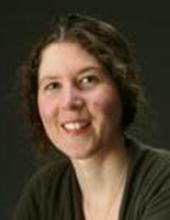
|
John M. Gingerich has concentrated his research on Beethoven, Schubert, and the beginnings of historicism and canon formation in early 19th-century Vienna. His book, Schubert’s Beethoven Project, was published in 2014 by Cambridge University Press, and includes major revisions to our understanding of Schubert’s career, his reception of Beethoven, and the status and role of the piano sonata in the early 19th century. He has also published articles on the cyclicism of Schubert’s cello quintet and hermeneutically suggestive connections between it and Schubert’s cycle of settings of Heine poems, on Schubert’s Latin Masses and what their texts and settings tell us about his religious convictions, on why his “Unfinished” Symphony remained unfinished, and on the ideologies and practices of the Schubert circle and their many connections to Friedrich Schlegel, including the Nazarene circle of painters. His work on Beethoven includes an article on the premieres of Beethoven’s late quartets, their reception, and the invention of classical music. He is currently working on a book on the violinist Ignaz Schuppanzigh, who premiered almost all of both Beethoven’s and Schubert’s chamber music, and whose concerts did much to shape the early reception of those works, and continues to influence how we listen to them. His research has been awarded NEH and ACLS fellowships.
He has taught at institutions including Peabody Conservatory, Indiana University, Yale, Wesleyan, and CUNY. Before embarking on his musicology studies he spent several years playing in the cello section of the Baltimore Symphony Orchestra.
|
 |
Nancy November is an Associate Professor in musicology. Combining interdisciplinarity and cultural history, her research centers on chamber music of the late eighteenth and nineteenth centuries, probing questions of historiography, canonization, and genre. Recent publications include Beethoven’s Theatrical Quartets: Opp. 59, 74, and 95 (Cambridge University Press, 2013); a three-volume set of fifteen string quartets by Emmanuel Aloys Förster (A-R Editions, 2016); and Cultivating String Quartets in Beethoven’s Vienna (Boydell Press, 2017). She is the recipient of a Humboldt Fellowship (2010-12); and two Marsden Grants from the New Zealand Royal Society. She recently edited a book on Beethoven’s Eroica Symphony (forthcoming, Cambridge University Press, 2020), and has published a broad range of chamber music from the nineteenth century in modern editions. The editions include a new practical edition of Beethoven’s middle-period string quartets for Beethoven Werke (forthcoming). |
 |
Mark Evan Bonds (Cary C. Boshamer Distinguished Professor) received a B.A. in music and German from Duke University in 1975; an M.A. in musicology from the Universität Kiel (West Germany) in 1977; and a Ph.D. in musicology from Harvard University in 1988. He taught at Boston University before joining the faculty at the University of North Carolina at Chapel Hill in 1992. His research interests include music of the eighteenth and nineteenth centuries, particularly instrumental music, aesthetic theory, and the intersections of music and philosophy. He has received fellowships in support of his research from the NEH, the ACLS, the National Humanities Center, the Institute for Advanced Study (Princeton), and the Austrian Science Foundation (FWF). His most recent book is The Beethoven Syndrome: Hearing Music as Autobiography (Oxford University Press). |
 |
Peter Zazofsky (Boston University). Student of Joseph Silverstein, Ivan Galamian, and Dorothy Delay. First Prize, Montreal International Competition, 1979; Second Prize, Queen Elizabeth of Belgium Competition, 1980. Soloist with Boston Symphony Orchestra, Minnesota Orchestra, Philadelphia Orchestra, Baltimore Symphony, Berlin Philharmonic, Rotterdam Philharmonic, and Vienna Symphony. Recitals throughout Europe and United States. Member, Muir String Quartet. He has taught at Boston University since 1987. |






